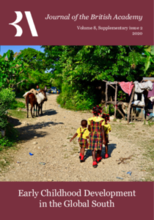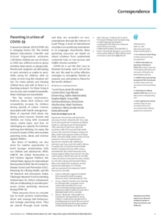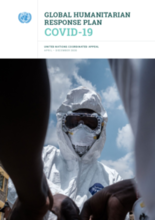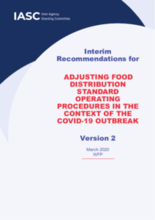Displaying 1561 - 1570 of 4424
This webinar will bring together key global agencies including WHO, UNICEF, the World Bank, LEGO Foundation, ARNEC and other partners, to provide a briefing on resources and actions being mobilized by each agency in response to COVID-19 and more.
This supplementary issue relates to a sequence of activities the British Academy has supported since 2015 in relation to the bringing together of a range of disciplinary perspectives on early childhood development.
This webinar explores guiding principles and practical tips for how your program can protect the children and families you serve during the COVID-19 pandemic.
This correspondence from the Lancet describes the collection of open access online resources for parenting during COVID-19
This document from the United Nations Office for the Coordination of Humanitarian Affairs (OCHA) outlines the Global Humanitarian Response Plan for COVID-19, a joint effort by members of the Inter-Agency Standing Committee (IASC), including UN, other international organizations and NGOs with a humanitarian mandate, to analyse and respond to the direct public health and indirect immediate humanitarian consequences of the pandemic, particularly on people in countries already facing other crises.
On this webpage, CAFO has created a central place to collect information that might be helpful to members of the faith community as they advocate for children and families in their communities.
This resource from the Consortium for Street Children aims to answer the questions of those who work with street-connected children in light of the COVID-19 crisis.
The Alliance for Child Protection in Humanitarian Action hosted a webinar on 24 March 2020 to introduce the new Technical Note: Protection of Children during the COVID-19 Pandemic.
COVID-19 is quickly changing the context in which children live. Prevention and control measures such as school closures (as announced or implemented in 100 countries) disrupt children’s routine and support structures.
This document aims to guide the revision of existing Standard Operating Procedures (SOPs) for Food Distribution in the COVID-19 context at the country level to minimize the risk of exposure of personnel, partners and beneficiaries.




